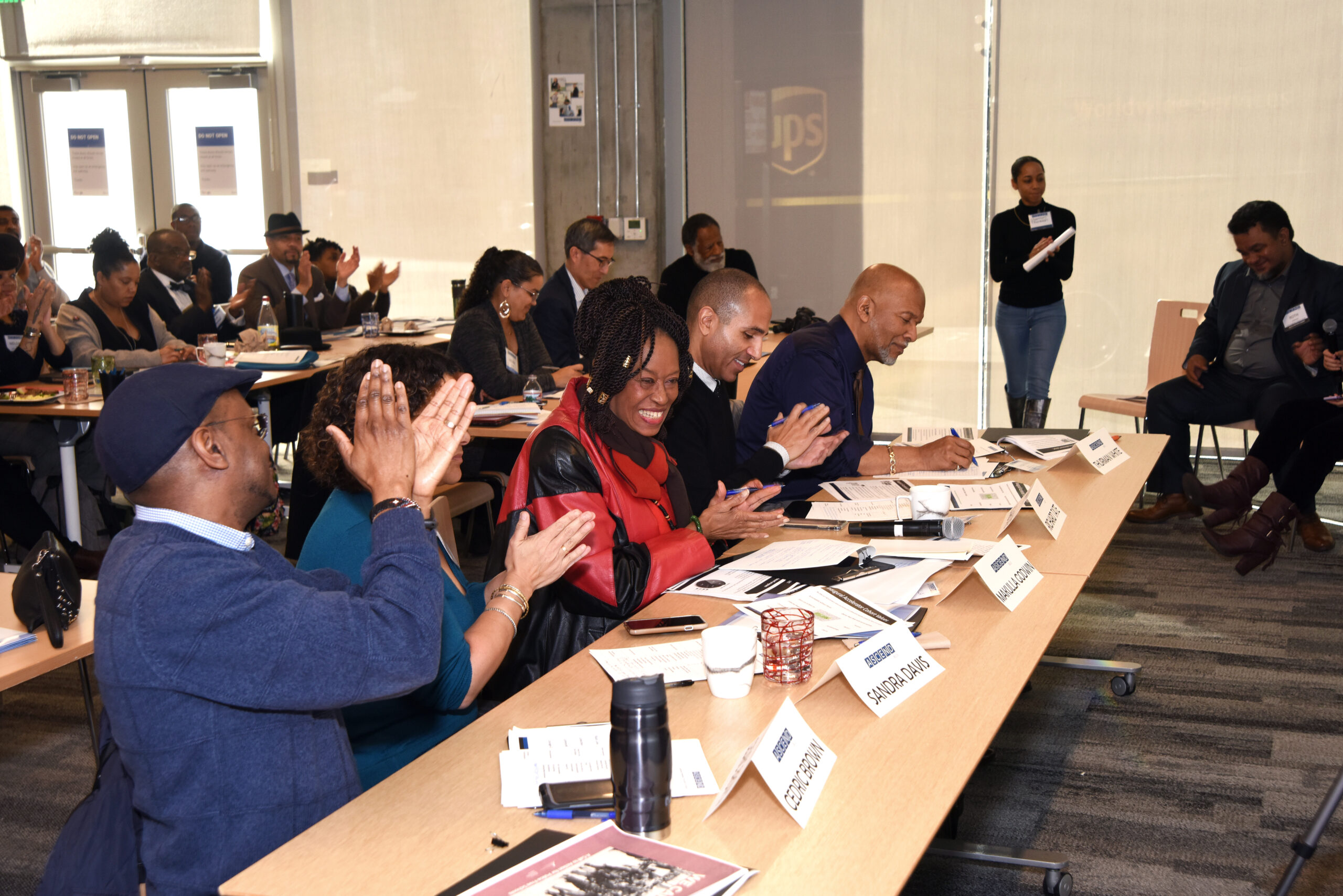Photo credit: Byron Malik
By Byron Johnson, Zakiyyah Brewer, and Julius Hampton
At East Bay Community Foundation, the ASCEND:BLO team focused on Capacity Building with a Racial Equity Lens is asking what philanthropy can do to foster robust and effective Black leadership, lift Black-led organizations (BLOs), and perhaps most importantly, enable Black liberation and healing.
Unrestricted funding is a necessary starting point for all donors and philanthropists aiming to create social change through Black-led organizations. It provides the necessary flexibility for organizations to respond to evolving needs, seize opportunities, and invest in their own growth and development. It also allows leaders to make strategic decisions based on their deep understanding of their communities and the challenges they face, rather than being restricted by narrow project-focused funding.
Black-led Organizations Lead with Less
Historically, Black-led organizations have less access to unrestricted funding, according to a 2020 report by the consultancy Bridgespan and Echoing Green, a gap that directly undermines the health and wellness of Black-led organizations and their leaders.
The report found that white-led organizations retained budgets 24% larger than those led by Black, Indigenous, and people of color. Furthermore, organizations with Black female leaders were granted less funding than those led by Black men or white women. Additionally, unrestricted funds of groups with leaders of color were 76% smaller than those with white leaders.
To put it plainly, trends in philanthropy have allowed white-led organizations to grow, pivot, and sustain themselves, leaving Black-led organizations to flounder in the shifting landscape of community needs. When there is a restricted use of funding, then it sends the message that there is a lack of trust in the organization to use the funds in the best way possible. Historically, restrictions lead to stagnation. Part of the movement toward trust-based philanthropy is giving BLOs the funds they need and “getting out of the way” because they know what’s best for their community.
To assess and provide the support that will help Black leaders succeed, initiatives like ASCEND: BLO have emerged. ASCEND: BLO supports Black-led organizations in six Bay Area counties: Alameda, Contra Costa, Marin, San Francisco, San Mateo, and Santa Clara. The initiative began in 2015 when local foundation leaders recognized the challenges that Black-led organizations faced in sustaining themselves and gaining access to sustainable philanthropic funding. EBCF conducted a study of BLOs to confirm the disparities and inequities they were witnessing, which revealed that BLOs face greater challenges in sustaining themselves and gaining access to necessary unrestricted funding.
ASCEND: BLO takes a trust-based approach to philanthropy and gives unrestricted funds to select emerging and mature, Black-led organizations in the Bay Area participating in one of the BLO cohorts. Grantmaking focuses on remedying specific challenges, including limited access to funding and resources, lack of organizational sustainability, leadership development and succession planning, and inadequate peer networking opportunities. A component of the initiative also includes a growing network of more than 400 organizations for peer-to-peer learning and opportunities for collaboration.
Capacity Building for Black-Led Organizations
For Black-led organizations to truly thrive, organizations need unrestricted funding to cover operating costs, build a strong foundation, and implement systems and structures, especially for leadership development, that contribute to long-term sustainability.
Through ASCEND: BLO’s stabilizer cohort, which is centered around supporting Black leaders going through planned executive transitions, we have been able to see how these leaders within their organizations implement leadership development. One example is the creation of a leadership pipeline within their organization, so that staff members—individuals that don’t normally feel like they have the space to lend their voice to decision making—who have gone through the program can move into leadership roles. This creates a more collaborative leadership style that’s being practiced within Black-led organizations. There is intentionality with their time and energy to create the space, systems, and pathways for people to be able to grow internally.
Rest, Responsiveness, and Removing Restrictions
A core part of ASCEND: BLO supports leadership development, so that leaders are able to respond to changing community needs. The initiative is designed to be responsive to the community’s needs and contexts by adjusting funding and support accordingly. We understand that what they needed four or five years ago can be drastically different from what they need now to meet their current moment.
With a Black liberation lens and framework, the initiative’s stabilizer and accelerator cohorts are designed to provide responsive support to multiple individuals within an organization (not just the executive director) to cultivate leadership development and succession planning. ASCEND: BLO recognizes that developing leaders throughout an organization is critical to sustaining progress and creating meaningful change.
Philanthropy’s Role in Systems Change
By recognizing and addressing the historical inequities in funding distribution, philanthropy can play a pivotal role in supporting Black-led organizations and fostering an environment of healing, freedom, and resilience. Prioritizing strong general operating funding is a critical factor in empowering Black leaders, enabling healing, and creating access to ample resources for those advancing social change.
The ASCEND: BLO initiative serves as a model and influencer for foundations, donors, and other entities to understand the importance of adopting a race-specific and liberatory lens when it comes to capacity building for Black leaders, individuals, and communities. Our goal is to shift from what traditional philanthropy has done for years—which has hindered real impact and compounded inequities—and to do grantmaking in a different way that looks towards redistributing power with long-term investment in Black-led organizations.
Find a Black-led organization to support: https://www.ebcf.org/organizations/
Funders and individual donors are invited to participate in the Black-Led Organizations fund, which supports the growth, sustainability, impact, and sense of community among Black-led anchor institutions in the Bay Area in order to ensure the long-term vitality of those organizations and the communities of color they serve. https://www.ebcf.org/donate/?designation=ascend-blo
